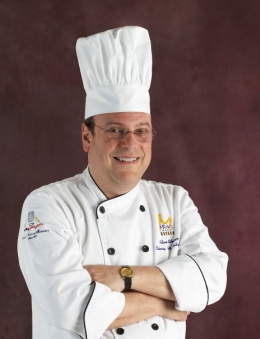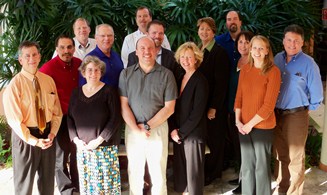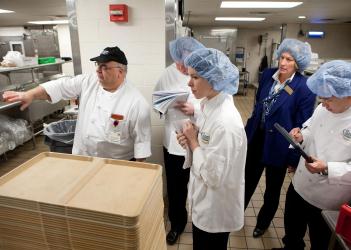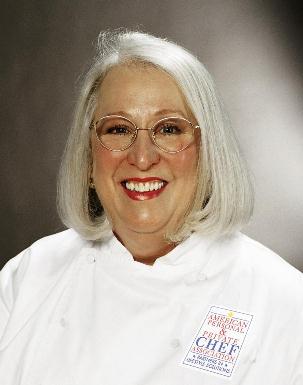Mayo’s Clinic: Teaching Seminar Classes
By Dr. Fred Mayo, CHE, CHT
 A seminar can be a great place to push students’ thinking and provide them with a different educational experience.
A seminar can be a great place to push students’ thinking and provide them with a different educational experience.
Last month, we discussed using how to make large classes seem small and less intimidating to students; this month, we will talk about the delight of some faculty members and the fear of others: teaching seminar classes, courses most often with fewer students and focused on specific, limited themes or topics.
Definition of a Seminar
Of course, many colleges have used the word seminar to distinguish certain courses as in Freshman Seminar or Major Seminar, often courses with large enrollments that have nothing to do with the original conception of seminar. However, most seminar courses are typically organized around a single topic or set of topics, they involve fewer students (often just enough to sit around a table or in a circle), and they require an approach to teaching and learning different than the typical lecture and discussion. Those of you who have had a chance to teach seminar courses know how different the experience can be and often how critical it is to help students adjust to this alternative structure.

 What will a potential employer see if he or she looks up your student on Facebook? This and six other points will help you help your grads find meaningful employment.
What will a potential employer see if he or she looks up your student on Facebook? This and six other points will help you help your grads find meaningful employment. Mango consumption has nearly quadrupled since 1990 to an estimated 2 pounds per capita annually.
Mango consumption has nearly quadrupled since 1990 to an estimated 2 pounds per capita annually. Although only a small percentage of seafood consumed in the United States comes from the Gulf of Mexico, the impact of consumer perception is taking its toll on restaurants, finds Technomic.
Although only a small percentage of seafood consumed in the United States comes from the Gulf of Mexico, the impact of consumer perception is taking its toll on restaurants, finds Technomic. The American Culinary Federation Education Foundation (ACFEF) Accrediting Commission, which assures that culinary programs with ACFEF accreditation meet at least a minimum of standards and competencies set for faculty, curriculum and student services, selected three new members to its commission and announced several leadership changes at its biannual meeting held at Lincoln Culinary Institute, West Palm Beach, Fla., Jan. 16, 2011.
The American Culinary Federation Education Foundation (ACFEF) Accrediting Commission, which assures that culinary programs with ACFEF accreditation meet at least a minimum of standards and competencies set for faculty, curriculum and student services, selected three new members to its commission and announced several leadership changes at its biannual meeting held at Lincoln Culinary Institute, West Palm Beach, Fla., Jan. 16, 2011. The Culinary Institute of America (CIA) has launched a first-of-its-kind course to raise the quality of food served at hospitals and other healthcare facilities nationwide. Foodservice Management in Health Care (MGMT 411) is an elective business-management course for second-semester CIA seniors. It is believed no other college course of this nature is being offered at this time.
The Culinary Institute of America (CIA) has launched a first-of-its-kind course to raise the quality of food served at hospitals and other healthcare facilities nationwide. Foodservice Management in Health Care (MGMT 411) is an elective business-management course for second-semester CIA seniors. It is believed no other college course of this nature is being offered at this time. Candy Wallace, founder and executive director of the American Personal & Private Chef Association (APPCA), has accepted the invitation to serve on the culinary Program Advisory Committee of The Art Institute of California-San Diego for a one-year term.
Candy Wallace, founder and executive director of the American Personal & Private Chef Association (APPCA), has accepted the invitation to serve on the culinary Program Advisory Committee of The Art Institute of California-San Diego for a one-year term. Though baking comes with its own rigors and rules, learning international breads expands students’ repertoire and deepens the learning experience.
Though baking comes with its own rigors and rules, learning international breads expands students’ repertoire and deepens the learning experience.